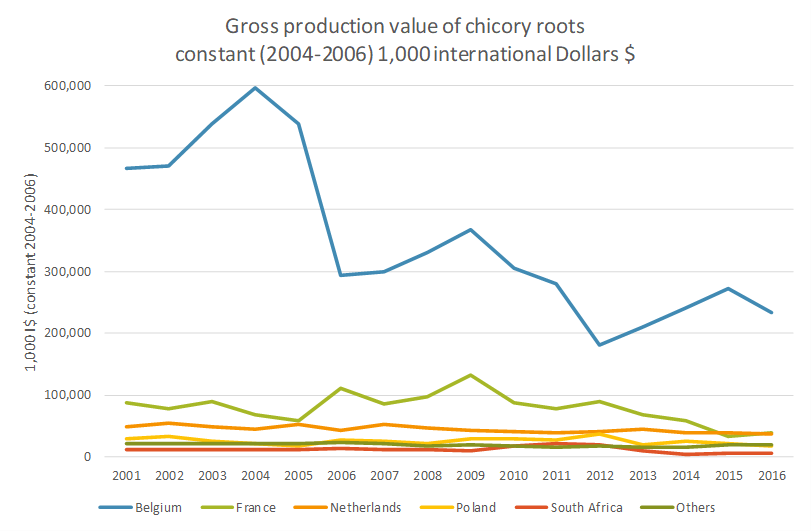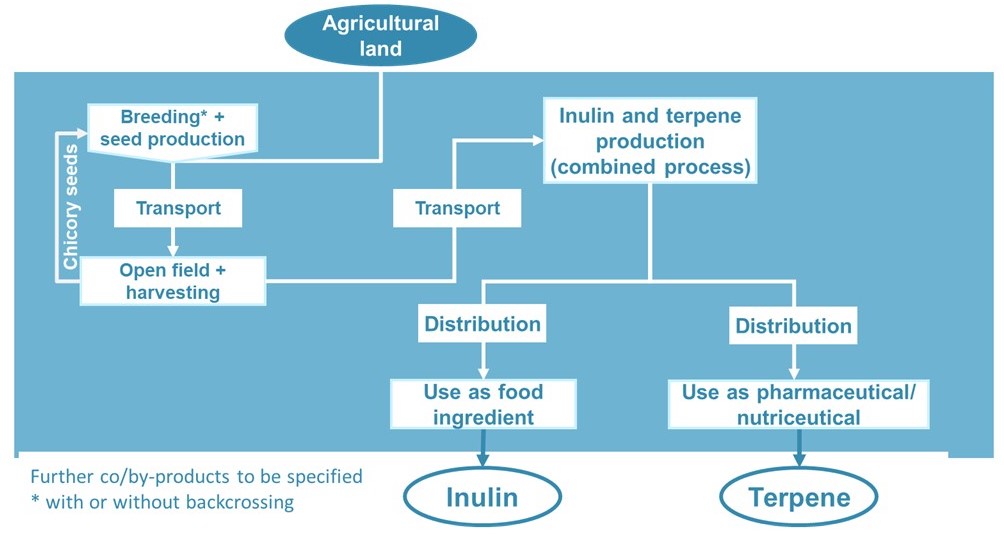Socio-economic and environmental impacts on the whole value chain
In CHIC we evaluate socio-economic and environmental impacts on the whole value chain of the new developed chicory crops. Therefore a socio-economic impact assessment and an environmental assessment of NPBTs and the whole value chain will be performed. In addition to these quantitative assessments, a qualitative research on societal issues hindering or facilitating chicory innovation will be applied.
The first steps included collecting and screening information on the CHIC value chain and the current chicory cultivation and inulin, therefore a literature and database research was made. Information on current chicory cultivation, inulin production, terpenes and NPBTs was screened and summarized. Followed by the identification of socio-economic and environmental indicators.
Statistics on international trade of root chicory and inulin from the UN COMTRADE and statistics on land-use, chicory production and yield from the Food and Agricultural Organization of the United Nations (FAO) have been analyzed. Figure 1 below shows the gross production value of chicory roots (including intermediate uses like seeds and feed) in 1,000 international Dollars. The five biggest producers of chicory roots, according to the available data, are Belgium, France, Netherlands, Poland, and South Africa. However, the main producer of chicory roots by far is Belgium.
To identify environmental and socio-economic impacts of the new CHIC process and the resulting products (Figure 2) an environmental assessment using the methodology of Life Cycle Assessment (LCA) and a socio-economic impact assessment using an input-output modelling will be applied. The whole value chain (e.g. breeding, cultivation, processing) will be included in the assessment.
The LCA will give information on e.g. greenhouse gas emissions, primary energy demand, water consumption, land use of the new value chain developed in CHIC. Within the socio-economic assessment, the impact of different NPBTs on economic and social indicators will be quantified such as GDP, production volume, growth, competitiveness, and employment as well as the distribution of wealth and income between different sectors and regions within the EU and the global economy. The results will be used to lead the development within the project in a sustainable direction.

Figure 1 Gross production value of chicory roots (Datasource: FAOSTAT)



 This project has received funding from the EU Horizon 2020 research & innovation programme under grant agreement N. 760891.
This project has received funding from the EU Horizon 2020 research & innovation programme under grant agreement N. 760891.

